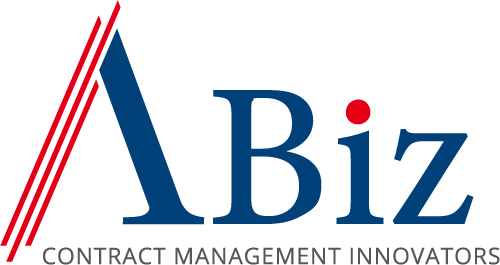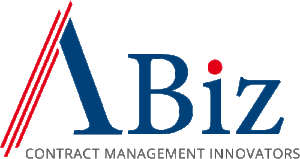In today’s fast-paced corporate environment, the management of commercial contracts has become a critical function for businesses of all sizes.
Contracts form the backbone of commercial relationships, defining the terms of engagement, responsibilities, and benefits for all parties involved. Despite their importance, many organizations still struggle with inefficient contract management processes, leading to significant financial losses and operational risks.
This blog will delve into the multifaceted benefits of commercial contract management, demonstrating how it can drive significant cost savings, enhance revenue, and mitigate risks for corporations. By exploring key functions, financial impacts, and successful implementation strategies, we aim to comprehensively understand how robust contract management can transform a corporation’s bottom line.
Join us as we unpack the financial implications of contract management inefficiencies and illustrate the substantial return on investment (ROI) that can be unlocked with strategic, technology-driven contract management solutions.
Why Contract Management is Crucial for Corporations
Contracts are commercial vehicles used to drive business, whether with customers or suppliers, and are a fundamental element of any organization’s sustainability. Leaders focusing on fiscal responsibility can use contract management as a lens for an operation’s health to determine how well their contracts and the processes surrounding them deliver against corporate goals.
The Financial Impact of Inefficient Contract Management
Imagine a large technology company losing millions of dollars annually on service contracts. Despite cutting every possible cost from their budget without significantly affecting their service quality, they continued to experience financial losses. Upon investigation, the company discovered that inefficient contract management was the primary cause of their problems. Critical issues included improperly managed obligations and service levels, leading to penalties for missed service targets.
To compensate, the company began delivering on any customer request, even those not covered under the agreed services, further straining their resources. This reactive approach failed to resolve underlying issues, resulting in customer dissatisfaction and additional penalties. Consequently, customer payments were delayed, severely impacting the company’s cash flow. This combination of penalties for poor performance, over-delivery, and payment delays created a financial death spiral, highlighting the critical importance of effective contract management in maintaining financial health and customer satisfaction.
The ROI of Effective Contract Management
According to the ROI of Contracting Excellence report (Deloitte/World CC, 2023), “contracting excellence offers a compelling ROI” to organizations struggling to rein in out-of-control legal costs. They also note, “It depends on a multi-functional response,” which we know is true. Every function within the process needs direct responsibility in making program improvements that drive revenue, from contract managers to executive stakeholders. Here are some of the benefits of effective contract management:
- Cost Savings: Implementing streamlined processes and technology can lead to substantial cost savings for corporations. Traditional contract management often involves manual processes that are time-consuming and prone to errors. By implementing a contract management system (CMS), companies can automate repetitive tasks, reduce administrative overhead, and minimize human errors.
- Revenue Optimization: Effective contract management optimizes revenue by structuring contracts to capture all potential revenue streams, such as upsell opportunities, performance incentives, and renewals. Utilizing data analytics, companies can identify and integrate high-revenue clauses from past contracts into new ones, enhancing profitability and compliance.
- Risk Mitigation: Effective contract management significantly reduces risks related to disputes, litigation, and compliance penalties. Clear and understandable contract terms prevent misunderstandings, ensuring smooth execution and minimizing conflicts. Technology must be introduced to mitigate these risks by ensuring all contracts adhere to the latest regulatory standards and maintaining an audit trail for all contractual activities. Additionally, contract management software can help with compliance checks that flag potential issues before they become problematic. Companies can avoid the financial and reputational damage associated with non-compliance by ensuring that all contractual obligations are tracked and met. This proactive approach to clarity and compliance mitigates risks and fosters stronger, more transparent business relationships.
- Efficiency Gains: Contract management technology improves workflow and reduces administrative burden. Automating repetitive tasks, such as document retrieval and status tracking, frees personnel to focus on strategic activities. A centralized repository ensures easy access to contracts and real-time status monitoring, leading to faster approvals and renewals, reducing bottlenecks, and enhancing productivity. According to Gartner, organizations using contract management software see a 60% reduction in contract cycle times and a 70% increase in compliance rates.
Key Components of An Effective Contract Management Function
For a practical contract management function to succeed, several key components are required for repeated success.
- Technology: We can’t understate the role of automation in effective contract management. Automating the workflow eliminates the manual aspects of creating, approving, managing, and renewing contracts. Advanced systems with artificial intelligence (AI) and machine learning (ML) can analyze contract performance, predict compliance issues, and suggest optimizations, further enhancing the capabilities of the contracting function.
- Processes: Effective contract management requires well-defined processes throughout the contract lifecycle. Best practices include:
- Standardization: Use templates and clauses to ensure consistency. Developing a playbook for contract reviews and negotiation can further enhance consistency.
- Approval Workflows: Implement clear workflows to streamline reviews. Remove bottlenecks of unnecessary reviews and approvals. Simultaneous reviews will also speed up the contracting process.
- Compliance Checks: Regularly audit for contractual and regulatory compliance.
- Performance Monitoring: Continuously track contract performance against terms. Use of obligation tracking and a contracted vs. performed exercise will enhance performance monitoring.
- People: Skilled professionals are essential for effective contract management. Continuous training keeps contract managers updated on the latest developments in the profession. Collaboration among contract managers, legal teams, and other stakeholders ensures alignment on contract objectives.
- Metrics and KPIs: Use quantitative and qualitative factors to determine contract value. Reviewing contract achievement against goals or processes involves uncovering and correcting in real-time for continuous improvement. Such metrics may include:
- Contract Cycle Time: Measure from initiation to execution; shorter times indicate efficiency.
- Compliance Rate: Track contractual compliance with policies and regulations for efficient contract management.
- Renewal Rate: Monitor renewals vs. terminations; high renewal rates may suggest customer satisfaction.
- Dispute Rate: Measure contract-related disputes; lower rates may reflect better management.
- Cost Savings: Calculate savings from negotiated prices with suppliers, which may indicate more effective negotiations.
Implementation Strategies to Increase ROI
These strategies will return desired business outcomes and value when developed and executed appropriately. Implementing an effective contract management function requires a strategic approach. Here are a few key steps to ensure a smooth and successful implementation.
- Assess Current State: Evaluate your existing contract management practices. Conduct a thorough audit to identify strengths, weaknesses, and gaps. Review current processes, technology, and team capabilities. Gather feedback from stakeholders to understand areas for improvement. This assessment provides a clear baseline and highlights critical areas needing attention. The use of an organizational capability maturity assessment may facilitate this activity.
- Develop a Plan: Create a roadmap for improvement based on the assessment. Define clear objectives and prioritize programs that address key weaknesses. Outline actionable steps, set realistic timelines, and allocate necessary resources. Ensure the plan is aligned with overall business goals and involves input from all relevant stakeholders to foster collaboration. Many corporations benefit from outside consulting for an objective and best practices perspective for success.
- Invest in Technology: Finding the right blend of technology will solidify the implementation. Look for software that offers features such as a centralized repository, obligation and compliance tracking, and advanced analytics. Consider scalability. Is it easy to integrate into existing systems, requires advanced search capabilities, and is overall user-friendly? Evaluate vendors based on their industry reputation, customer support, and, most importantly, the flexibility of their solutions to meet your specific needs.
- Training and Development: This is one of the most critical activities–continuous education keeps staff updated on the latest legal, regulatory, and industry changes. Develop a training curriculum that covers best practices, technology use, and negotiation skills. Encourage professional certifications through organizations such as World Commerce and Contracting and pursue ongoing learning opportunities to enhance expertise and performance.
- Continuous Improvement: Adopt a continuous improvement strategy to ensure ongoing optimization and monitoring of contract management processes. Regularly review and update processes, incorporate stakeholder feedback, and adapt to changing business environments. Use metrics and KPIs to measure success and identify areas for further enhancement. Foster a continuous learning and improvement culture to maintain high standards and drive long-term success.
Conclusion
As you can see, evaluating effective contract management ROI requires a holistic approach to exploring essential functions, technology, and successful implementation strategies. Without paralyzing you with stats, the reality is that corporations that adopt technology and refine their CLM processes will experience significant decreases in contract management costs and increases in efficiency and customer satisfaction.
How far the ROI extends depends mainly on several factors. How committed is your organization to contractual operational excellence? Your willingness to invest in technology, adopt best practices and effective processes, and hire and train staff to execute efficiently and responsibly will take you there. You won’t know what is working and what isn’t unless you evaluate your organization. If you aren’t satisfied with the current ROI of your contracts, dig in and start considering improvements. Effective contract management offers corporations a competitive advantage in the marketplace, which should not be overlooked.
ABiz Corporation brings clarity and innovation to full lifecycle commercial contract management—architecting business models, managing contracts, and educating to unlock value, create efficiencies, and reduce risk. Book a complimentary discovery call today to tap into our deep knowledge of all aspects of the contract lifecycle and contracting best practices.



